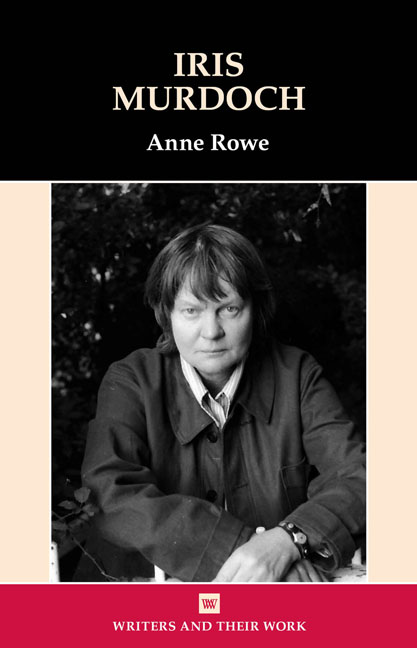Book contents
- Frontmatter
- Dedication
- Contents
- Acknowledgements
- Biographical Outline
- Abbreviations
- Introduction: Iris Murdoch (1919–1999)
- 1 A Writing Life: 1954–1995
- 2 Writing the Novel of Ideas: The Philosopher and Public Intellectual
- 3 Writing Sacraments: The Holy Atheist
- 4 Writing ‘A New Vocabulary of Experience’
- 5 Writing the Landscape: The Island of Spells and the Sacred City
- Afterword: ‘Onward!’
- Notes
- Select Bibliography
- Index
5 - Writing the Landscape: The Island of Spells and the Sacred City
- Frontmatter
- Dedication
- Contents
- Acknowledgements
- Biographical Outline
- Abbreviations
- Introduction: Iris Murdoch (1919–1999)
- 1 A Writing Life: 1954–1995
- 2 Writing the Novel of Ideas: The Philosopher and Public Intellectual
- 3 Writing Sacraments: The Holy Atheist
- 4 Writing ‘A New Vocabulary of Experience’
- 5 Writing the Landscape: The Island of Spells and the Sacred City
- Afterword: ‘Onward!’
- Notes
- Select Bibliography
- Index
Summary
Scenery and weather are almost as important as Characters
Two geographical environments predominantly shaped Murdoch's identity: Ireland, her birthplace, the ‘island of spells’, and London, the city in which she spent much of her life and spoke of as ‘sacred’. Having been born in Dublin, she habitually referred to herself as ‘Anglo-Irish’, or ‘Irish’, but she was brought to London as a young baby, boarded at Badminton School in Bristol, spent her student years at Oxford and Cambridge, and divided most of her adult life thereafter between London and Oxford. She returned to Ireland only intermittently to holiday or visit friends and family, so her Irish identity was largely absorbed from her ancestry rather than from any physical sense of belonging, and Conradi notes a willingness in her to mythologize her Irish origins and lament her long-lost ancestral home (IMAL 26). Accounts of her as a young woman, however, suggest that she had charmingly imbibed her parents’ Irish brogue and, in 1964, writing to David Morgan, she maintained somewhat implausibly that she had ‘an Irish accent you could cut with a knife […] I may have misleading Oxford overtones – but the vowels are Irish’. She could be angry and defensive when accused of not being ‘real’ Irish: ‘people sometimes say to me rudely, “oh, you’re not Irish at all!” But of course I’m Irish. I’m profoundly Irish and I’ve been conscious of this all my life, and in a mode of being Irish which has produced a lot of very distinguished thinkers and writers’ (TCHF 94). Yet the dominant landscape of her novels is her ‘beloved’ London, and only a fraction of her fictional output draws on her Irish roots.
Her pride in her Irish identity sits oddly alongside a rather unforgiving treatment of the Irish in her fiction and, consequently, her ‘Irishness’ has been a subject of debate in Murdoch scholarship. Writing to David Hicks in 1945 she refers to the country with uncharacteristic bitterness as the ‘island of spells, provincial pigsty. (“Little brittle magic nation dim of mind”. Joyce of course.)’ (LOP 44). As political unrest in Ireland intensified during her lifetime she became wary of the effect of Ireland on her imagination, and said that she wrote comparatively little about the country because she feared she might romanticize its tragedy or be absurdly sentimental about it.
- Type
- Chapter
- Information
- Iris Murdoch , pp. 96 - 112Publisher: Liverpool University PressPrint publication year: 2019

